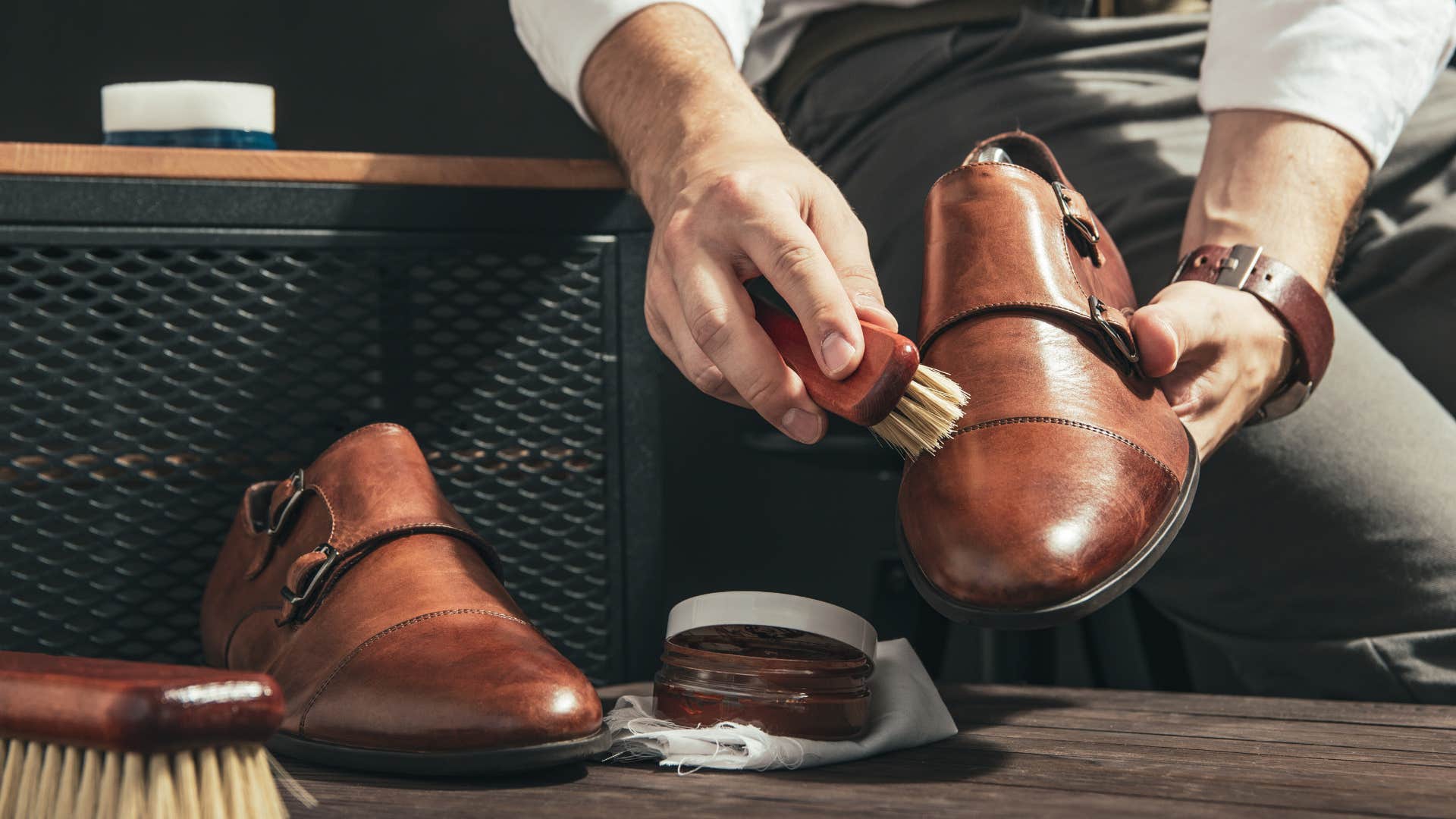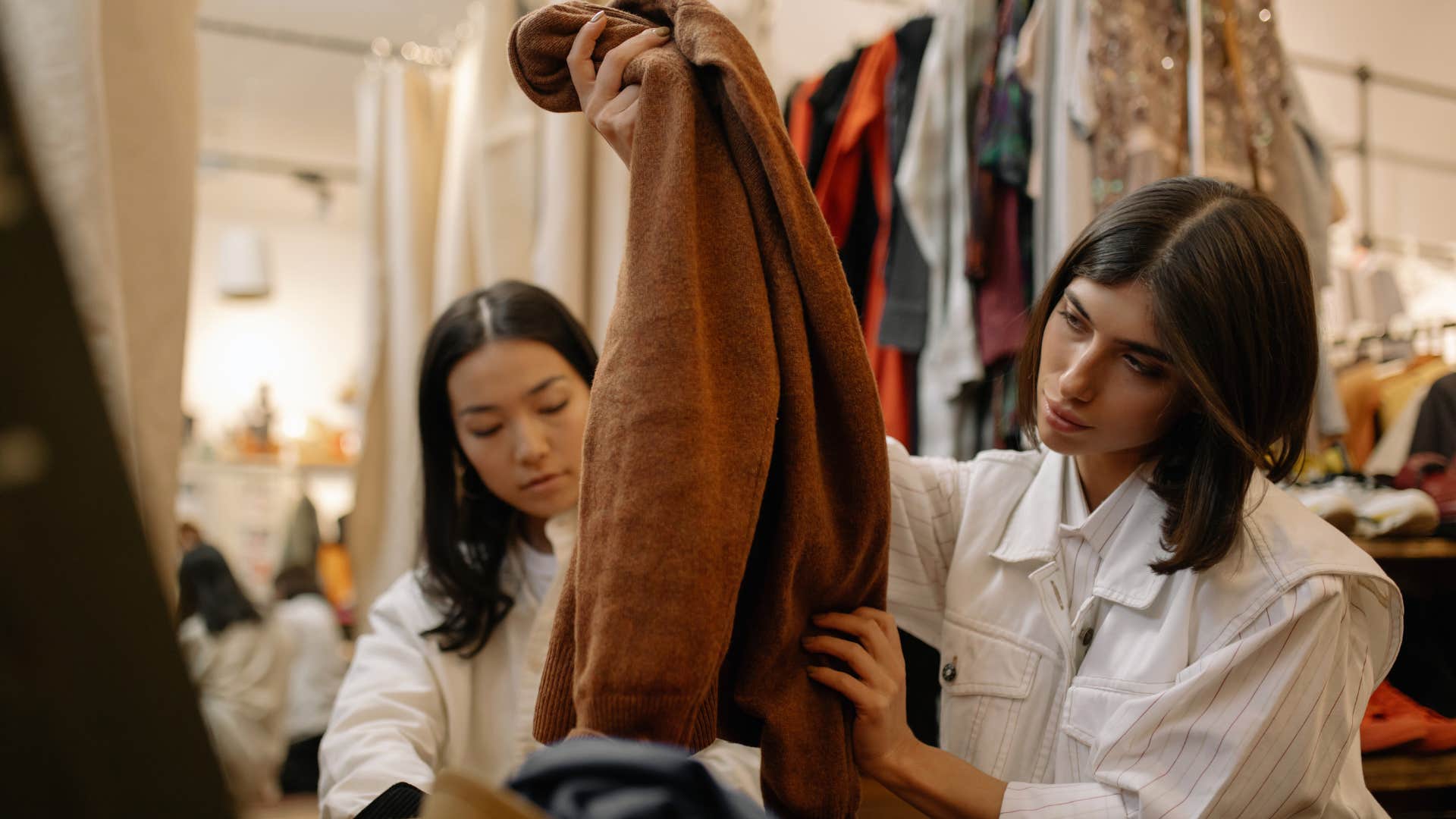11 Little Things That Instantly Reveal Someone Used To Have Money, But Doesn’t Anymore
Some habits outlast the lifestyle that created them, and they quietly say more than words ever could.
 Vladimir Trynkalo / Shutterstock
Vladimir Trynkalo / Shutterstock Losing money doesn’t mean losing identity, at least not right away. Many people who used to be well-off still carry small habits, preferences, or assumptions shaped by the comfort they once had. These are simply traces of a former life, still quietly written into how they move through the world.
It’s not always easy to tell when someone’s financial reality has changed, especially if they don’t talk about it. But sometimes, you don’t need to ask. The little things, such as the way they speak, spend, or hesitate, reveal a lot about who they used to be, as well as what they’re still adjusting to now.
These are 11 little things that instantly reveal someone used to have money, but doesn’t anymore
1. They know the 'nice' version of everything, and they notice when it’s missing
 Zinkevych from Getty Images via Canva
Zinkevych from Getty Images via Canva
They can tell the difference between luxury linens and a discount set just by touch. Even if they don’t buy high-end anymore, they still gravitate toward it, spotting quality (or a lack of it) instantly.
They might politely say nothing, but you’ll notice the way they glance at off-brand items or flinch at shortcuts. That quiet familiarity with luxury doesn't go away just because the budget does.
2. They casually reference experiences that seem out of place now
 Laurence Dutton from Getty Images via Canva
Laurence Dutton from Getty Images via Canva
They’ll mention ski trips, private schools, or that time they studied abroad without meaning to sound flashy. It's what's normal to them, but those references don’t always match the life they’re living now, and sometimes they realize it mid-sentence.
You can feel the subtle shift as they pause or trail off, like they’re remembering that part of their story isn’t current anymore. It’s a soft kind of dissonance, a life they lived that no longer quite fits.
3. They hesitate before buying cheap versions of things
 Robert Kneschke via Canva
Robert Kneschke via Canva
Even when money’s tight, they’ll agonize over low-quality purchases, like they’re betraying some unspoken rule. They're not comfortable with settling for less than they were taught to expect.
Deep down, they still believe certain things should last, feel nice, or work flawlessly. Bargain-bin compromises feel like a painful surrender to their new reality.
4. They keep old high-end items in pristine condition, even if they don’t use them
 baloon111 from Getty Images Pro via Canva
baloon111 from Getty Images Pro via Canva
Maybe it’s a designer bag, a tailored coat, or a beautiful set of dishes they now keep boxed up. They may not take these things out anymore, but they protect them with almost reverent care.
They're holding onto something from a life that felt more secure. Those few nice things become sacred, reminders of a time when quality felt normal, not indulgent.
5. They’re still shocked by how expensive “normal” things are now
 Ariwasabi via Canva
Ariwasabi via Canva
They keep muttering that it “didn’t used to be like this” when talking about the prices of groceries, rent, or gas. That’s because they once lived in a world where inflation didn’t dictate survival, and basic costs weren’t a constant source of anxiety.
Now that they’re on the other side of it, the sticker shock feels personal, like the world changed without warning. They haven’t fully adjusted to budgeting every penny, even if they’re trying to.
6. They speak the language of wealth fluently, even if they’re broke
 RDNE Stock Project from Pexels via Canva
RDNE Stock Project from Pexels via Canva
They can talk about interest rates, property taxes, high-end brands, or investment strategies as if they still belong in that world. Often, they do it without realizing how jarring it sounds in their current context.
To them, it’s a former vocabulary they never fully unlearned. It’s a subtle way they remain fluent in a lifestyle they can no longer afford to live.
7. They’re uncomfortable with visible frugality
 mediaphotos from Getty Images Signature via Canva
mediaphotos from Getty Images Signature via Canva
Using coupons, shopping secondhand, or admitting they can’t afford something makes them visibly squirm. They’re not judging anyone else. They’re just still getting used to this version of their life.
For someone raised in wealth or who once had it, frugality can feel like exposure, a confirmation that they’ve fallen further than they ever imagined. They’re still adjusting to the idea that needing a deal isn’t shameful, it’s smart.
8. They try to make inexpensive things feel expensive
 cottonbro studio from Pexels via Canva
cottonbro studio from Pexels via Canva
They’ll artfully plate cheap meals, iron bargain clothes, or arrange dollar-store flowers like they came from a boutique. Presentation becomes their quiet rebellion against scarcity.
They were raised to believe in elegance, and they’re determined to recreate it, even on a dime. There’s beauty in their effort, and a little ache as well.
9. They’re overly generous, even when they can’t afford to be
 PR Image Factory via Canva
PR Image Factory via Canva
They’ll insist on splitting the bill evenly when they clearly ate less, or buy a gift that stretches their budget way too far. Old money habits are hard to break, especially the part that says it’s rude to look like you can’t pay.
They don’t want anyone to notice how things have changed, so they mask it by being overly gracious. Often, they end up quietly resenting how much it cost them.
10. They worry more about how something looks than how practical it is
 alynst from Getty Images via Canva
alynst from Getty Images via Canva
They’ll dress sharp even when it’s inconvenient, or tidy up a barely used guest room before worrying about fixing the broken faucet. That image of being “put together” was drilled into them.
It used to reflect pride, discipline, and even worth. Now it’s a kind of armor, helping them hold on to some dignity when everything else feels unstable. Appearances used to be optional. Now, they feel like a lifeline.
11. They don’t talk about money, even when they probably should
 Moyo Studio from Getty Images Signature via Canva
Moyo Studio from Getty Images Signature via Canva
They’ll change the subject, make vague excuses, or say “it’s fine” when it really isn’t. Silence was once considered polite — a mark of class, not secrecy. But now, it also protects their pride and avoids awkward conversations they’re not ready to have.
Not talking about money used to mean you didn’t need to worry about it. Now it just means you don’t want people to know that you do.
Sloane Bradshaw is a writer and essayist who frequently contributes to YourTango.

